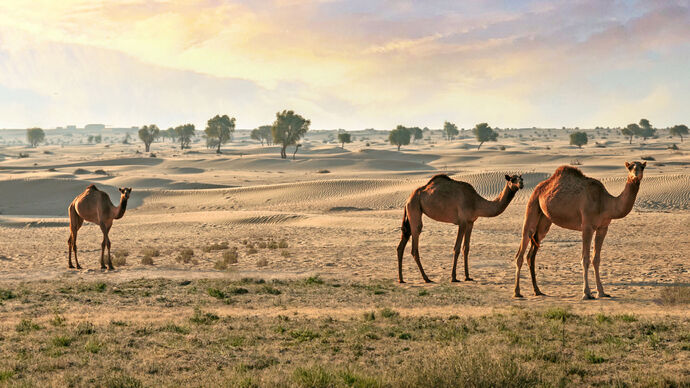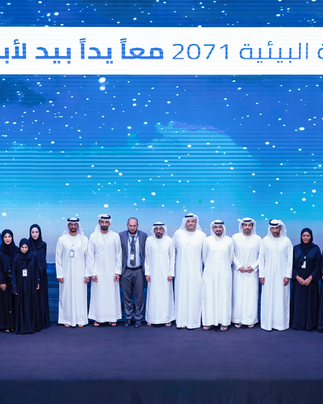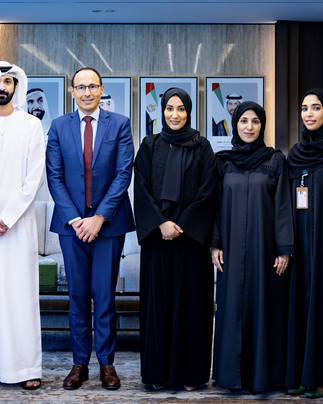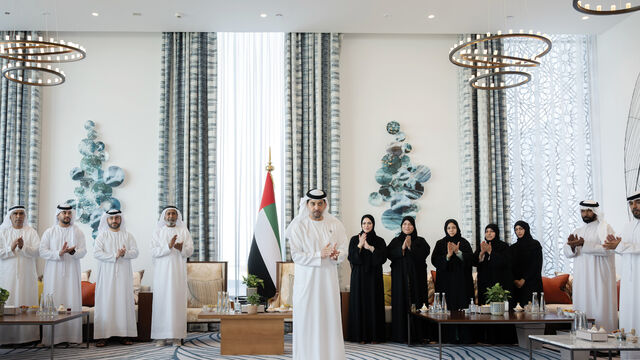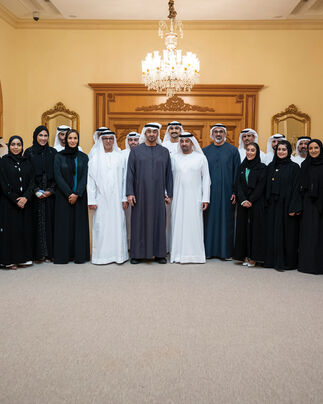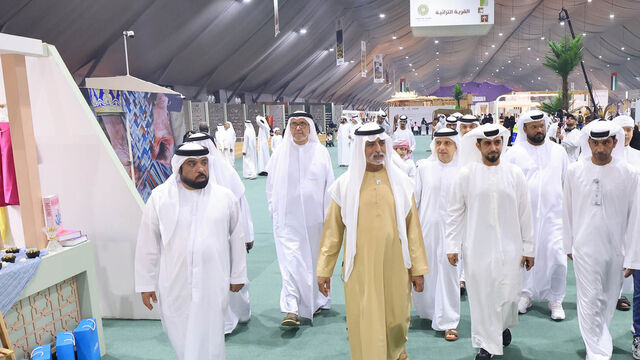Under the directives of His Highness Sheikh Hamdan bin Zayed Al Nahyan, Ruler's Representative in Al Dhafra Region and Chairman of the Board of Directors of Abu Dhabi, Environment Agency – Abu Dhabi (EAD), EAD has issued the Executive Regulations of Law No. (11) of 2020 framework regarding the regulation of grazing in Abu Dhabi.
The annual grazing season in the emirate has been set as 1 May-15 October to ensure the recovery of vegetation in other parts of the year, enhance and sustain biodiversity, as well as ensure the continuity of pastures for future generations, as part of its efforts to regulate grazing and provide protection for natural pastures in Abu Dhabi.
As the authority for environmental affairs throughout Abu Dhabi, EAD is responsible for implementing the law, which aims to regulate grazing to protect natural pastures and promote sustainable traditional practices in coordination with the relevant authorities. This will secure protected areas, and critical and sensitive natural habitats, according to precise principles that will protect plants of all kinds from overgrazing.
Based on the Executive Regulation, in July 2023, EAD began issuing licences to owners and breeders of livestock to regulate grazing activity and all related activities in Abu Dhabi. To obtain a grazing licence, the applicant must be a UAE citizen and should not be less than 21 years old. The applicant must also have a valid livestock inventory certificate approved by Abu Dhabi Agriculture and Food Safety Authority (ADAFSA).
The measures contribute to allowing the natural pastures to recover, and protect the desert environment from pressures caused by overgrazing.
Examples include the deterioration of desert vegetation cover and beneficial local plants, soil erosion and erosion, which leads to a decline in the numbers of livestock that depend entirely on natural pastures, and the emergence of signs of desertification appearing in areas of Abu Dhabi. This is in addition to its importance in giving the opportunity for desert habitats to recover naturally. EAD is also investing in research and rehabilitation, through its scheduled environmental pasture assessment programme, as well as the rehabilitation of key plant species, through its programme that aims to protect and rehabilitate local trees.
Livestock owners and breeders who meet the requirements can apply to EAD for a licence after paying the application fees.
They must also submit a copy of their Emirates ID card, and an approved and valid animal wealth inventory certificate. They must also be registered in the animal identification and registration system in the emirate from the relevant authorities. The applicant must also identify the individuals who will accompany and care for the livestock and provide a copy of their Emirates IDs.
Licence holders will be allowed to graze in open wild areas and should stay not less than 2km away from reserves, forests, residential, military, petroleum, and private areas, as well as all prohibited roads and locations. They will also be required not to leave livestock grazing without accompaniment, and to adhere to the period specified for grazing in the licence, which is renewable after one year.
Those licensed to graze must comply with several environmental requirements, which include not introducing exotic plants, animals, or any harmful substances into grazing areas. They must also not uproot, burn, transport, cut, destroy, log, remove, or collect pasture plants or any part thereof in grazing areas. They should also not damage or harm the biodiversity or cause any damage to the local environment in the grazing areas and adhere to the permitted grazing seasons.
Licensees must also follow periods of suspension of grazing, determined by EAD in coordination with the relevant authorities, to ensure the sustainability of grazing areas. It is also prohibited to use bicycles, cars, or any type of vehicle or machinery in grazing areas in a way that affects vegetation cover. It is also prohibited to transfer their grazing licence to another person.
EAD, in cooperation with the Majalis Abu Dhabi at the Presidential Court, also organised a series of nine awareness lectures titled The Practice of Grazing Within the Framework of Preserving and Sustaining Pastures, which were held in Abu Dhabi, Al Ain and Al Dhafra Region. More than 350 farm owners and livestock owners have attended the lecture series so far, which aims to promote, educate and raise awareness of preserving and developing the natural environment.
The licence can be applied for via the EAD website, www.ead.gov.ae. Applicants must select the Knowledge Center, then Resources, where they can access the Grazing Licence Application Form to download.
Applicants should fill out the form, attach the required documents, and send them via email to: customerhappiness@ead.gov.ae. Upon completion, the customer will be sent a link to pay AED 250, after which an electronic copy of the grazing licence will be issued and sent to the customer via email.


